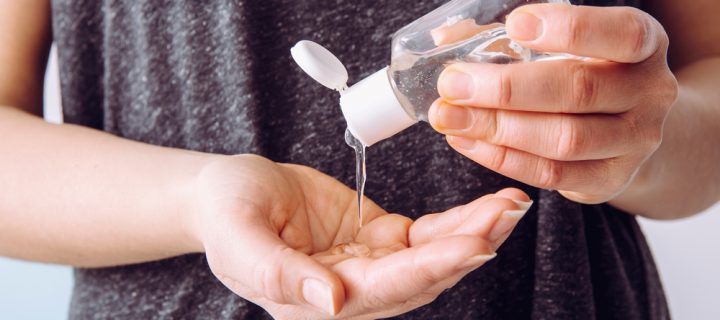They can contain deadly toxins not present in other, approved, hand sanitizers.
Washing your hands frequently and using hand sanitizer are some of the best tools we have on hand to stop the transmission of the coronavirus. Hand sanitizer works by dissolving the membranes of the coronavirus and ‘denaturing’ its protective outer proteins. Basically, it breaks the virus apart, killing it. While washing your hands with soap for at least 20 seconds is said to be the best way to ensure you don’t catch COVID-19 after touching a contaminated surface or person, hand sanitizers come in a close second. But are all created equal? According to the experts, some are better than others, and there are some you should actually avoid altogether.
Related: How Effective is the Johnson & Johnson Vaccine?
Which ones are particularly bad? In a statement put out by the U.S Food and Drug Administration (FDA) at the end of January 2021, Americans were warned about buying and using hand sanitizers made in Mexico. Here’s what we know about it.
Deadly Wood Alcohol Being Used
Recently, a countrywide import alert was put in place by the FDA on all alcohol-based hand sanitizers from Mexico, because the products seem to be in violation of US standards. Basically, some of these products contain ingredients that can be dangerous and not as effective at killing the coronavirus. Since the FDA can’t test everything all at once, a blanket import ban was put in place to protect the Americans while testing continues.
According to the FDA, there has been a ‘sharp increase’ throughout the pandemic of hand sanitizers imported from Mexico indicating they contain ethanol, which is also called ethyl alcohol. When tested, however, these sanitizers were found to contain methanol. This is wood alcohol, which is bad news. Wood alcohol can be toxic when it’s absorbed by your skin, and it can kill you if you swallow it. Methanol shouldn’t be present in your hand sanitizer, end of story. If your child gets a hold of it and swallows some, it can be deadly, and you can poison yourself by applying it to your skin often.
Related: Pandemic Habits: Frequent Cannabis Use Linked to Decrease in IQ
According to the FDA’s website, 84% of alcohol-based hand sanitizers from Mexico were not in compliance with US federal regulations when tested from April to December 2020.
“Consumer use of hand sanitizers has increased significantly during the coronavirus pandemic, especially when soap and water are not accessible,” said Judy McMeekin, Pharm.D., the FDA Associate Commissioner for Regulatory Affairs.
“The availability of poor-quality products with dangerous and unacceptable ingredients will not be tolerated.”
Treating Methanol Poisoning
Experts advise that consumers who have come in contact with hand sanitizers containing methanol contact their local poison control center, and seek immediate medical attention. This can ensure you reverse the toxic effects of the hand sanitizers and avoid methanol poisoning, which can be fatal.
Using or ingesting hand sanitizer contaminated with methanol can cause permanent blindness, cardiac and central nervous system damage, hospitalization, seizures, coma, vomiting, and death. Stay safe and use approved hand sanitizers only.
photo credits: FotoHelin/Shutterstock.com











